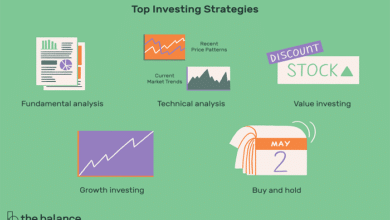
Introduction:
Investing in stocks can be one of the most effective ways to build wealth over time. By purchasing shares of a company, you essentially become a part-owner of that business and stand to benefit from its growth and success. This guide aims to demystify the process of investing in stocks, providing you with the knowledge you need to make informed decisions and achieve your financial goals.
What is Stock Investing?
Stock investing involves buying shares of publicly traded companies. These shares represent ownership in the company, and the value of these shares can fluctuate based on the company’s performance and market conditions. When you invest in stocks, you are betting on the future success of these companies, hoping that their value will increase over time, leading to financial gains for you as a shareholder.
Why Invest in Stocks?
Investing in stocks offers several potential benefits. Stocks have historically provided higher returns compared to other asset classes like bonds or savings accounts. They offer the opportunity for significant growth and can be an essential component of a diversified investment portfolio. Additionally, investing in stocks can provide dividends, which are periodic payments made to shareholders from the company’s profits.
Types of Stocks: Your Options
When investing in stocks, it’s crucial to understand the different types available. Common stocks represent ownership in a company and entitle shareholders to vote on corporate matters. Preferred stocks, on the other hand, provide no voting rights but typically offer fixed dividends. Additionally, growth stocks are companies expected to grow at an above-average rate, while value stocks are considered undervalued and trade for less than their intrinsic worth.
How to Start Investing in Stocks
Starting to invest in stocks is easier than ever, thanks to online brokerage platforms. To begin, open a brokerage account, deposit funds, and start researching companies you’re interested in. It’s essential to understand the basics of stock market research, including reading financial statements, analyzing market trends, and understanding the economic factors that can affect stock prices.
Fundamental Analysis: Evaluating a Company’s Worth
Fundamental analysis involves evaluating a company’s financial health and performance to determine its intrinsic value. Key metrics to consider include earnings per share (EPS), price-to-earnings (P/E) ratio, return on equity (ROE), and debt-to-equity ratio. By understanding these metrics, you can make more informed decisions when investing in stocks, identifying companies with strong potential for growth.
Technical Analysis: Using Charts and Indicators
Technical analysis focuses on historical price movements and trading volumes to predict future stock price trends. Tools such as moving averages, relative strength index (RSI), and Bollinger Bands can help investors identify buying and selling opportunities. Combining technical analysis with fundamental analysis can provide a more comprehensive approach to investing in stocks.
Diversification: Minimizing Risk in Stock Investing
Diversification involves spreading your investments across various sectors, industries, and asset classes to reduce risk. By not putting all your money into a single stock, you can protect yourself from significant losses if that stock underperforms. Diversification is a crucial strategy for long-term success when investing in stocks.
Long-Term vs. Short-Term Investing
Deciding whether to invest in stocks for the short-term or long-term is an essential consideration. Long-term investing involves holding stocks for several years, allowing you to benefit from compound growth and ride out market volatility. Short-term investing, or trading, focuses on capitalizing on short-term market movements and requires more active management and higher risk tolerance.
Common Mistakes to Avoid When Investing in Stocks
Avoiding common pitfalls can improve your chances of success when investing in stocks. Some mistakes include failing to diversify, letting emotions drive investment decisions, ignoring company fundamentals, and attempting to time the market. Learning from these mistakes can help you develop a more disciplined and strategic approach to stock investing.
The Future of Stock Investing: Trends to Watch
The stock market is constantly evolving, with new trends emerging that can impact your investment strategy. Keep an eye on technological advancements, changes in consumer behavior, and global economic developments. Staying informed about these trends can help you make better decisions and stay ahead when investing in stocks.
Conclusion:
Investing in stocks can be a rewarding journey, offering the potential for significant financial growth and the satisfaction of supporting businesses you believe in. By understanding the basics, employing strategic analysis, and staying disciplined, you can navigate the complexities of the stock market and achieve your investment goals. Remember, the key to successful stock investing lies in continuous learning and adapting to the ever-changing market landscape.
FAQs
1. What is the best way to start investing in stocks?
The best way to start investing in stocks is to open a brokerage account, deposit funds, and begin researching companies. Focus on understanding both fundamental and technical analysis to make informed decisions.
2. How much money do I need to start investing in stocks?
You can start investing in stocks with as little as a few hundred dollars. Many brokerage platforms offer fractional shares, allowing you to invest smaller amounts in high-priced stocks.
3. Is it possible to lose money when investing in stocks?
Yes, investing in stocks involves risk, and it’s possible to lose money. Diversifying your portfolio and conducting thorough research can help mitigate this risk.
4. How do dividends work in stock investing?
Dividends are payments made by a company to its shareholders from its profits. They provide a regular income stream and can be an essential part of your returns when investing in stocks.
5. Can I invest in stocks if I have no financial background?
Absolutely. Many resources and tools are available to help beginners learn about investing in stocks. Starting with basic research and gradually expanding your knowledge can lead to successful investing.





